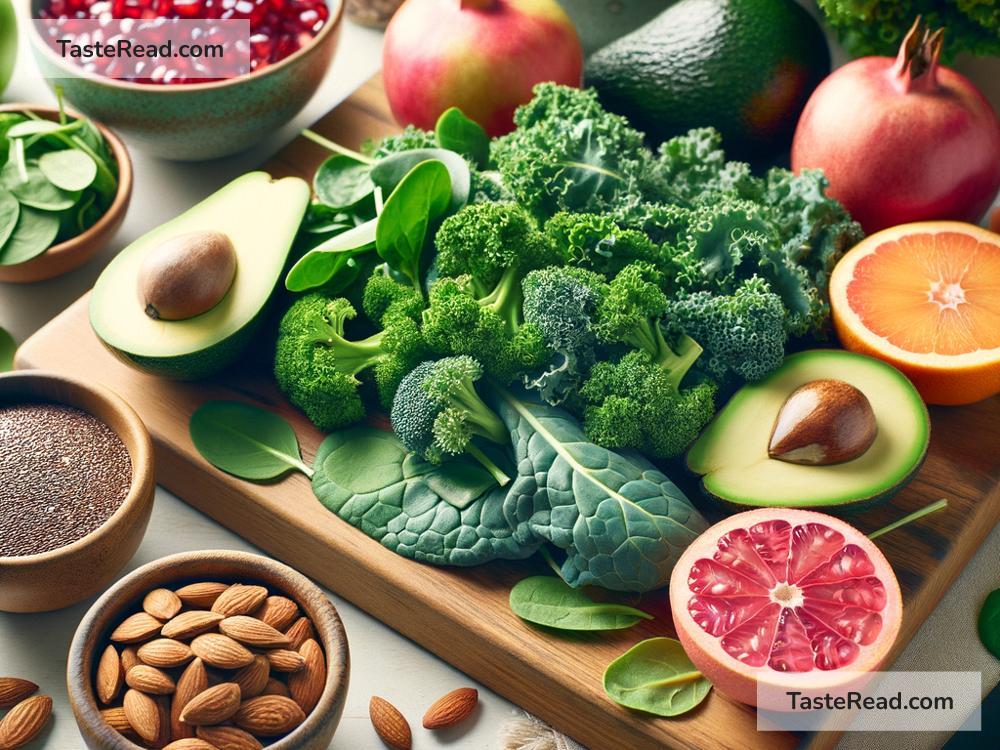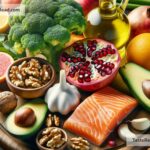Foods That Support Uterine Health: Nourishing Your Body for Better Reproductive Health
Our bodies thrive when we give them the right nutrients, and the uterus – an important organ for reproduction – is no exception. Whether you’re planning a pregnancy, managing menstrual discomfort, or simply aiming to maintain overall health, eating the right foods can play a big role in supporting uterine wellness. Let’s look at some foods that can help support a strong and healthy uterus and why they matter.
Why Uterine Health is Important
The uterus is a vital organ in a woman’s reproductive system. It plays a key role in menstruation, pregnancy, and childbirth. A healthy uterus supports fertility and contributes to overall hormonal balance.
Poor uterine health can result in issues such as irregular periods, cramps, fibroids (non-cancerous growths in the uterus), endometriosis, and other reproductive health conditions. Eating certain foods with specific nutrients can help strengthen the uterus and promote overall wellness.
Foods That Support Uterine Health
Here’s a list of foods that can nourish and support your uterus, explained simply and clearly:
1. Leafy Green Vegetables
Leafy greens like spinach, kale, and broccoli are excellent for uterine health. These vegetables are rich in vitamins A, C, and E, as well as calcium and potassium. They also contain antioxidants that help reduce inflammation and protect the cells in your uterus. Leafy greens also boost blood flow to the pelvic region, encouraging proper uterine function.
2. Fruits Rich in Vitamin C
Citrus fruits like oranges, lemons, and grapefruits, as well as strawberries, are high in vitamin C. Vitamin C helps boost your immune system and contributes to better circulation, which is essential for uterine health. Additionally, it can help your body produce collagen for maintaining the strength of the uterine wall.
3. Whole Grains
Whole grains like oats, quinoa, and brown rice are packed with fiber, which helps eliminate excess estrogen from your body. Balanced estrogen levels are crucial for uterine health, as imbalances can lead to conditions like fibroids or heavy menstrual bleeding. Fiber also helps improve digestion and supports proper hormone regulation.
4. Fatty Fish
Salmon, mackerel, and other fatty fish are rich in omega-3 fatty acids. Omega-3s have anti-inflammatory properties that can reduce period cramps and lower the risks of developing uterine fibroids. They also improve blood circulation and can enhance hormonal balance.
If you don’t eat fish or follow a vegetarian diet, you can get omega-3s from foods like walnuts, chia seeds, and flaxseeds.
5. Nuts and Seeds
Nuts like almonds and walnuts, and seeds such as flax and pumpkin seeds, are valuable sources of vitamin E and omega-3 fatty acids. Vitamin E is known for its anti-inflammatory properties and its ability to improve uterine lining health. Seeds like sesame and sunflower also contain magnesium, which may help relax uterine muscles and reduce cramping.
6. Healthy Fats
Foods like avocado, olive oil, and coconut oil contain healthy fats that support hormonal balance and reduce inflammation in the body. Hormones play a crucial role in uterine health, and consuming these fats can help regulate them naturally.
7. Legumes
Beans, lentils, and chickpeas are great plant-based sources of protein, fiber, and essential minerals like magnesium and iron. Magnesium helps reduce stress-induced inflammation in the uterus, and iron is important for replenishing your body’s blood supply, especially during menstruation.
8. Herbs and Spices
Certain natural herbs like turmeric and ginger have anti-inflammatory properties that can support uterine health. Turmeric contains curcumin, which helps fight inflammation and prevent fibroids. Ginger improves blood circulation and can help reduce menstrual pain. Adding these spices to your diet is an easy and tasty way to boost uterine health.
9. Dairy and Calcium-Rich Foods
Calcium is vital for uterine muscle health, and consuming dairy products like milk, cheese, or yogurt can ensure your uterus remains strong. For people who are lactose-intolerant, calcium-fortified plant-based milks like almond milk or foods like broccoli and kale are great alternatives.
10. Water
Water isn’t a food, but staying hydrated is essential for uterine health! Proper hydration helps your body flush out toxins and keeps your tissues functioning well. Aim for at least 8 glasses of water a day to keep your uterus healthy.
Foods to Limit or Avoid
While some foods are great for uterine health, others can hinder it. Limiting junk food, processed sugars, and trans fats is key to reducing inflammation and avoiding hormone disruption. Excess caffeine and alcohol can also negatively impact your reproductive system, so it’s best to consume these in moderation.
Final Thoughts
Uterine health is closely tied to the food we eat and our overall lifestyle. By incorporating nutrient-packed foods like leafy greens, fruits, nuts, and fatty fish into your diet, you can nourish your uterus and promote reproductive health naturally.
It’s also important to pair a wholesome diet with other healthy habits – regular exercise, sufficient sleep, and stress management all contribute to better uterine function.
Remember, every woman’s body is unique. If you have specific concerns about uterine health or experience persistent issues, be sure to talk to a healthcare provider. They can guide you on the best strategies, including tailored nutrition, to support your overall well-being.
Taking care of your reproductive health doesn’t have to be complicated – with the right foods in your kitchen, you can nourish your uterus and feel your best!


